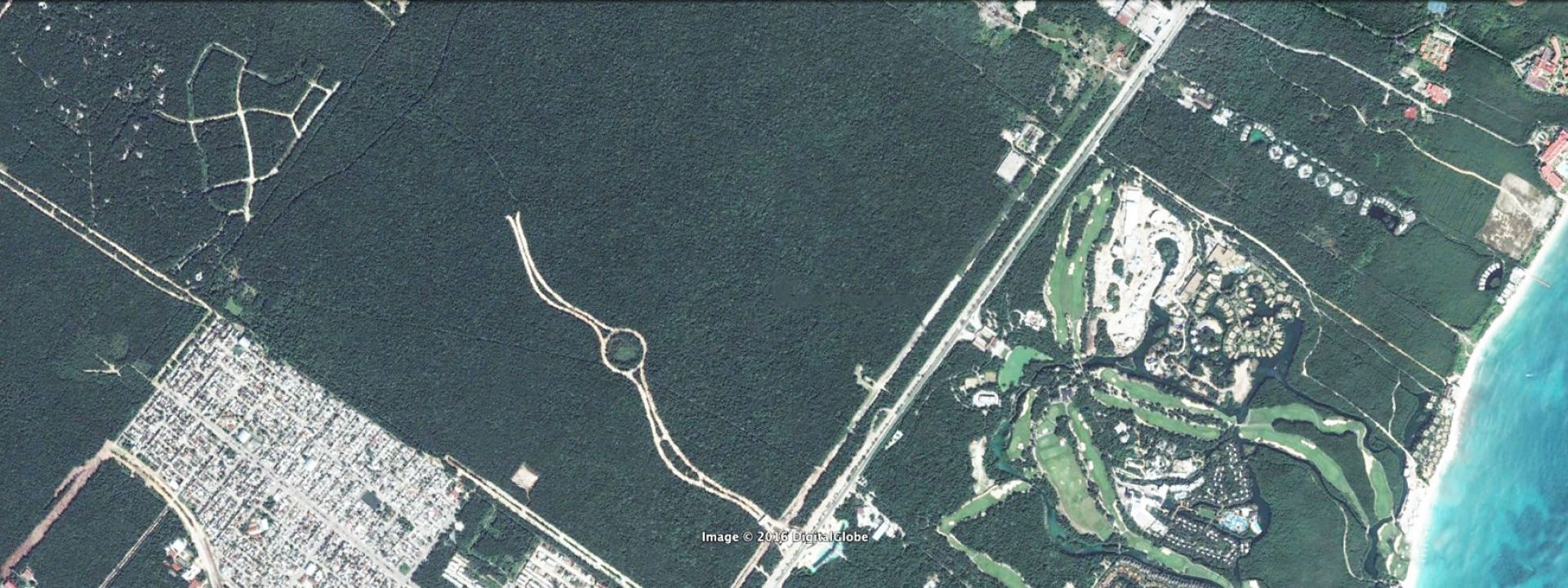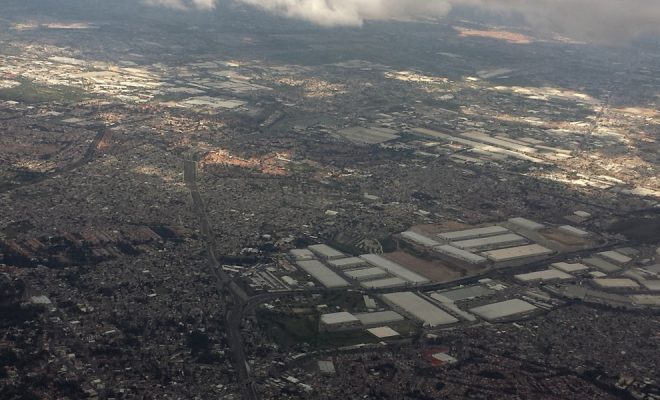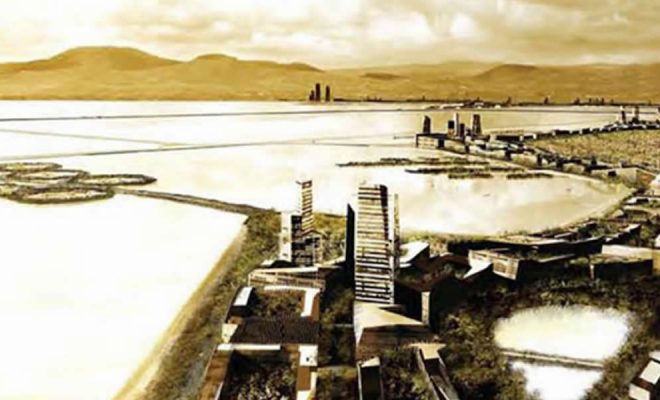Tourists are increasingly aware of the environmental impact of the destinations they choose and they demand with increasing insistence more information from promoters on this matter. Guests staying at resorts and hotels also tend to participate more in activities that take care of the environment and they consume less water. The desalination and reuse of water is already a key element in the design of any facility in areas such as Mexico or the Caribbean, where water resources are unstable or nonexistent. The tourism industry is optimistic about a green future.
These were the encouraging ideas presented by the experts gathered at the debate Smart Water, Smart Cities moderated by David Cámara, curator of the event, one of the highlights of the iWater show held at the Fira de Barcelona and adjacent to the Smart City Expo World Congress.
The filmmaker Albert Solé opened the conference remembering El sueño del agua (The dream of water), the documentary that took him around the world for three years searching for key stories in the relationship of humans with water. This work for UNESCO had a deep impact on his life: “I spent three years being obsessed with water and I fell in love with it. I had the privilege of filming what is really relevant: the economic, political, anthropological, philosophical and infrastructure dimensions. We filmed in five continents and found very hard conditions, but we also discovered unbelievable things and we confirmed that dialogue is a basic issue. And above all problems that lie in wait for water, politics and governance are essential.”
Solé provided the first ray of hope of the day when declaring: “I analysed war zones, areas where disputes on water took place and regions with a high risk of experiencing a water crisis. However, water is a topic for dialogue and cooperation: water exists as an element of value for peace.”
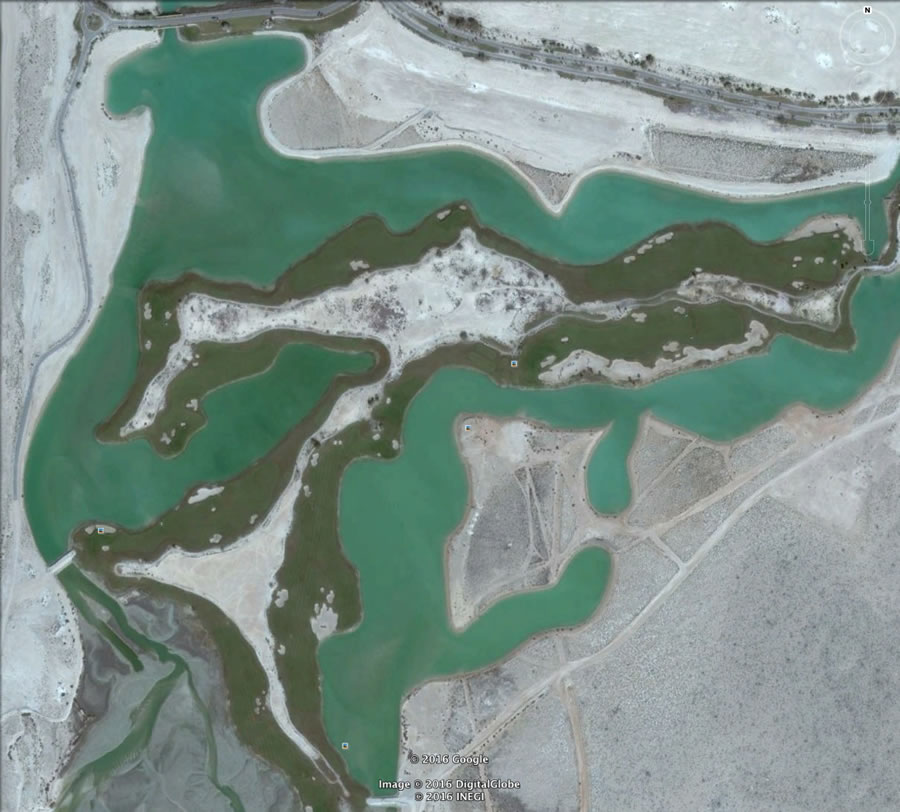
Laguna del Mar at Puerto Peñasco, right in the middle of the Sonora desert (Mexico)
The architects Arturo y Jorge Arditti participated next via Skype, providing a global vision of the situation in Mexico, their country, where water management is full of controversial contrasts, mainly due to a poor distribution of the population and an inefficient management of the water resources. Arturo pointed out: “Although we are moving ahead at a staggering speed, there is still uncertainty, management is complex and generally discouraging, as it is not the role of the real estate developer to solve any problems related to the water supply… A trust should be set up that would provide transparency to these situations so that the public and private sectors may jointly develop ideas.“
As for Jorge, he insisted on the key role played by education: “Education is essential. We as architects need to get an education and educate developers and our clients and certainly all students. Our goal is to provide “zero discharge” to drainage, using 100% of water. We would need to create a certification for buildings related to the use of water.”
Carmen Sarmiento, Sustainable Development Manager at OHL Desarrollos, participated right after. This development company has created the project Ciudad Mayakoba, which has been awarded various sustainability prizes for its innovative nature in the respect for the environment. The project required a detailed hydrological, geological and ecological study in order to build while respecting the mangrove area in that region: “It was complicated as it meant moving the homes 500 m. away from the beach and this is not attractive from the tourist point of view. We ended up removing the vegetation from the building sites and taking it to a nursery so that the plants could later be replanted, thus avoiding the interference of non-native species. In this way we were able to reduce the irrigation costs to the minimum. Irrigation is carried out with water obtained from the desalination process instead of using fresh water; even the golf course uses this salty water.”
Sarmiento claimed that the clients of Ciudad Mayakoba value the sustainable philosophy of the dwelling greatly, even participating actively in the good environmental practices promoted by the developer of the tourist complex. These same conclusions were detailed by Fernando Fernández, Development Vice President for Apple Leisure Group, who explained how the hotel guests participate in activities such as the cleaning up of beaches, even those outside the resorts of the U.S. promoter, a specialist in Caribbean and Mexican destinations: “Sustainability is a key value in our facilities, we are very aware of the environmental impact and our clients in the U.S. are very conscious as well: they demand certifications and are concerned about the programmes of environmental care. We involve our guests in the protection of the fauna and flora and above all, in the good use of water; and their response is overwhelming. This is without a doubt an up and coming value.”
Miguel Angel García, Director of the Equity and Expansion Area for Iberdrola Inmobiliaria, reflected this philosophy when explaining the ambitious project of Laguna del Mar at Puerto Peñasco right in the middle of the Sonora desert (Mexico): “We created our own ecosystem in one of the hottest deserts in the world.” By means of a system that retains the water from the tide, they were able to create permanent saltwater lagoons. This water, after being desalinated, feeds the entire tourist complex. “There was no fauna”, García commented, “and now there are pelicans and fishes; and we have taken a step further by turning these lagoons, which were initially private, into public property. All this was unthinkable 10 years ago.” The representative of Iberdrola Inmobiliaria highlighted that from the very start of the project the company promoted and achieved the dialogue and coordination with all institutions and administrations, thus corroborating the words from Albert Solé: “It is true that the water problem is mainly a problem of governance and this is a good example of dialogue between institutions. And it is convenient to understand that the fact that a company earns money is not negative, as it can be applied to regenerate the environment no one took care of, such as the one at Puerto Peñasco. In Europe, and especially in Spain, this culture is not very popular, but I think this should change.”
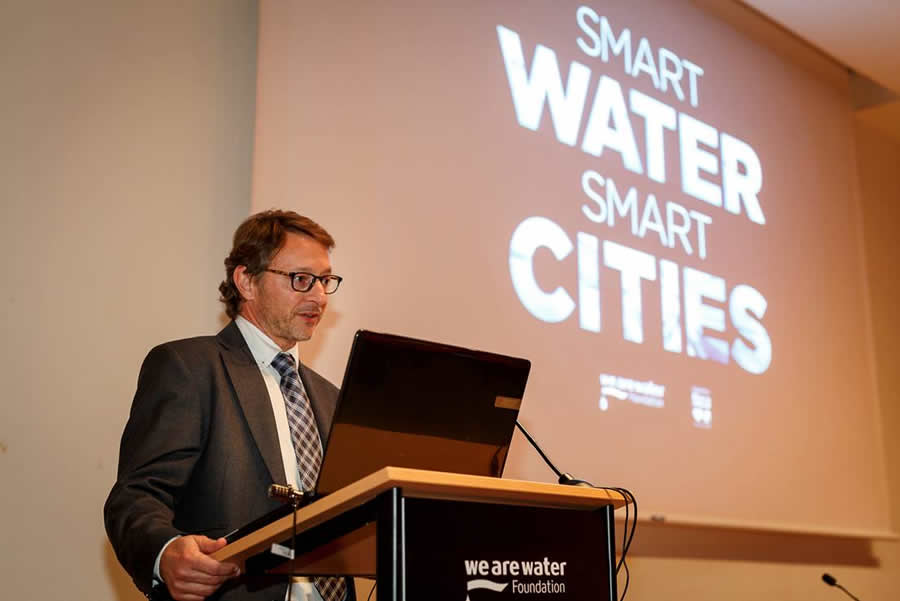
Xavi Torras, director of the We Are Water Foundation, opened the event.
In the debate round table, Edgardo Regatky from the branding agency Menos es Más briefly presented the situation in Argentina, a country with plentiful water resources but with problematic areas and a soaring consumption. Regatky highlighted the importance of the environmental awareness: “Our consumption doubles the one in the USA and triples the average consumption in the EU. The key point is to develop awareness raising programmes, working with citizens and creating the awareness of the meaning of a water resource.”
Next, Santiago González, CEO of the architectural firm Naos stressed the importance of the intervention of all agents within the water chain and explained that “our philosophy needs to be very clear: we need to commit to a resource that is as difficult to manage as water is in nearly all urban developments.”
The architect Shuichi Kobari took part in the debate mentioning two failed projects in order to “learn from errors.” The member of Toyo Ito & Associates also explained the different approaches to the water issue in Japan and in a country such as Spain: “There is plenty of water in Japan and the problem we find is how to control it in a parallel way to life; this belongs to the cultural structure in Japan. Japanese people develop the water issue from a philosophical point of view.”
Pedro Luis Peñalver, Director of the engineering company Exceleria, presented technology as a complementary element to water and provided concepts to understand the concept smart water: “Technology and water… we cannot understand one without the other. Technology in the governance and management of water can be applied to the largest and the smallest scale possible. We can manage the water resources of a basin or detect the leaks in the water pipes in homes. In all cases we keep adding efficiencies that improve the system.”
Ignacio Elburgo, managing director of Fluidra, a company specialising in the installation of swimming-pools, highlighted the importance of the awareness of the water issue: “I understand it is difficult to be aware of a problem that you do not need to face every day. At the end of the day water does not determine our life: we can say that water is cheap. I think that the future will be much better, our children have a much greater awareness than we do… just the fact of learning to close the tap while they are brushing their teeth… no one explained that to me! I think nowadays they are much more aware, more social and this will take us to a much better circumstance.”
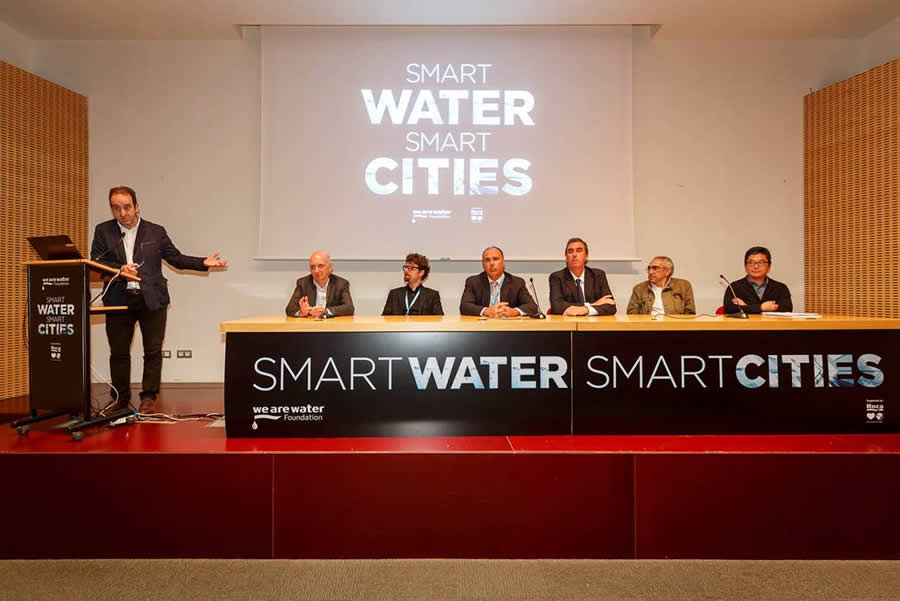
From left to right, David Cámara, curator of the event, presents the speakers of the debate: Edgardo Regatky from the branding agency Menos es Más; David López from EDL Creative Water; Pedro Luis Peñalver, director of the engineering company Exceleria; Ignacio Elburgo, managing director of the company Fluidra; Santiago González, CEO of the architectural firm Naos; Shuichi Kobari, member of Toyo Ito & Associate.
The concern for minimising the expense in ornamental water installations was set forth by David López from EDL Creative Water, a company specialising in this sector, who explained the essence of his work: “We join nature with water to create ornamental effects.” He also talked about his previous experience in a water treatment plant where he had to face political problems and economic interests: “Many times good faith is not present in everyone related to water issues.”
Water makes tourism green. This is the way.


